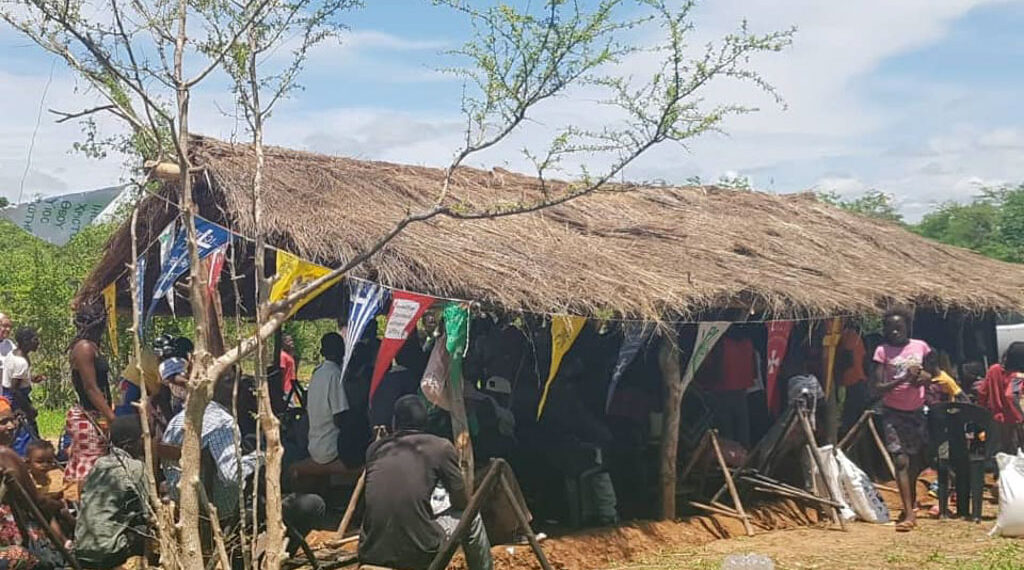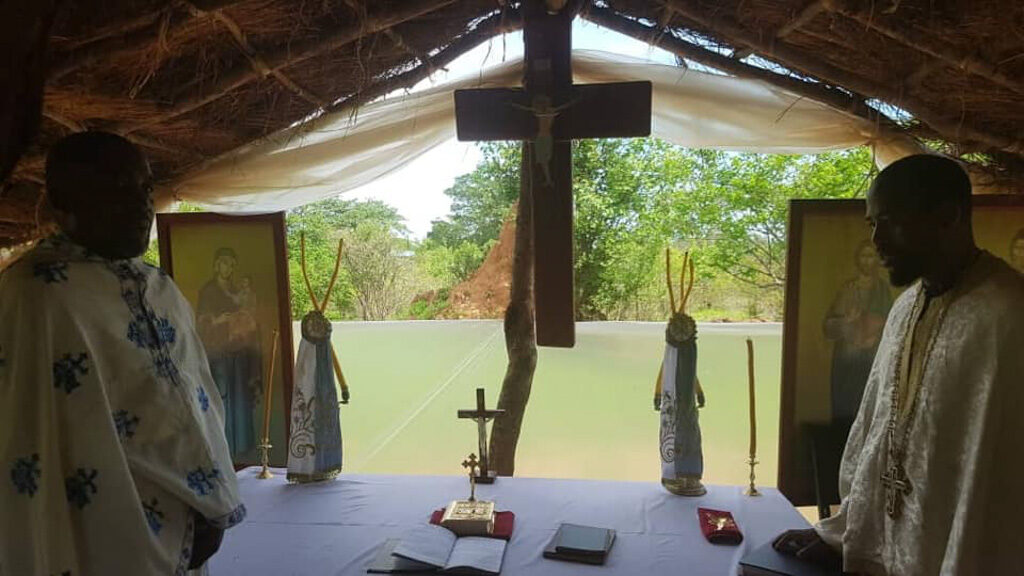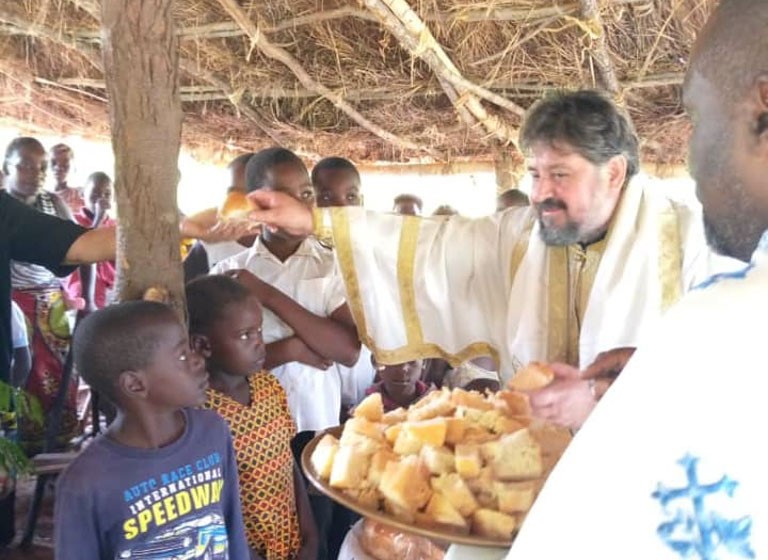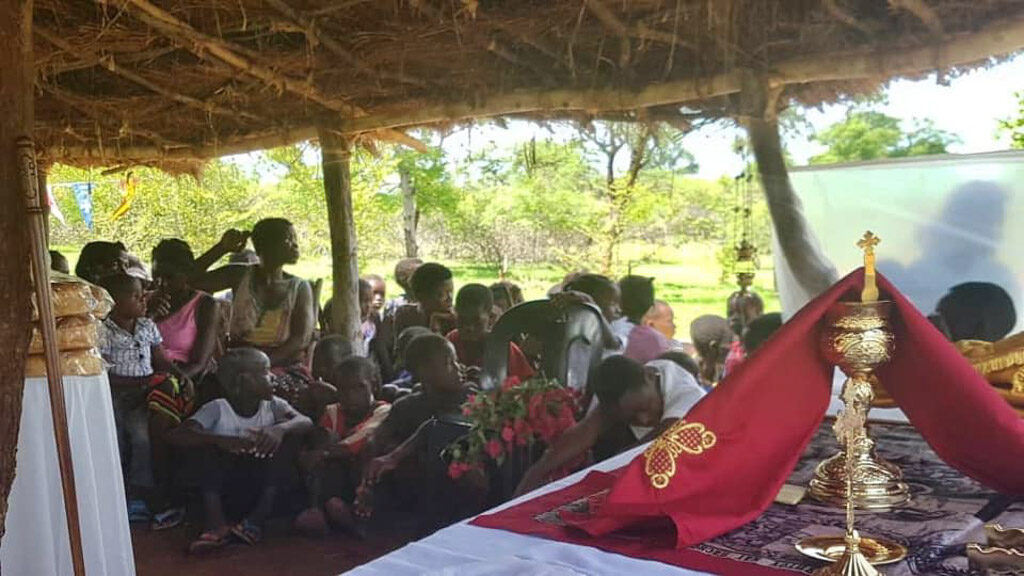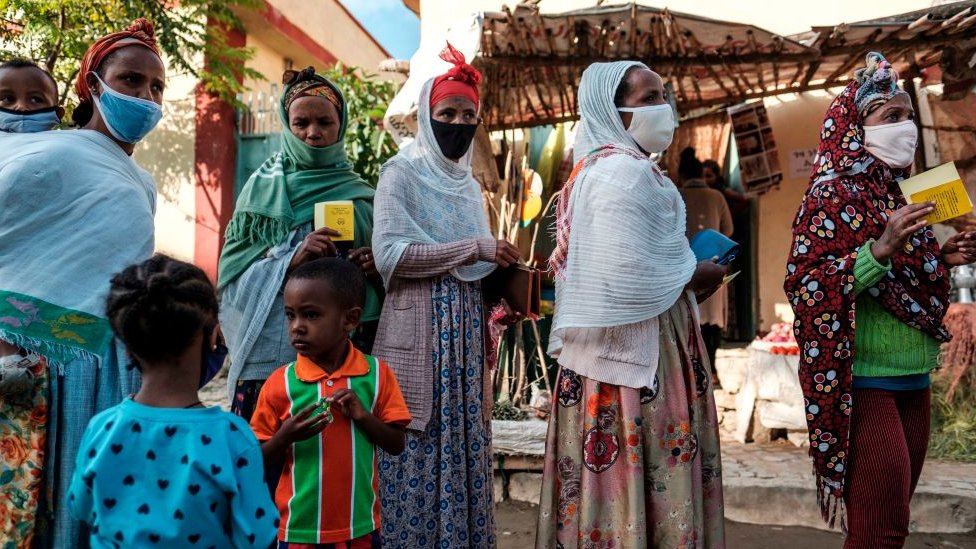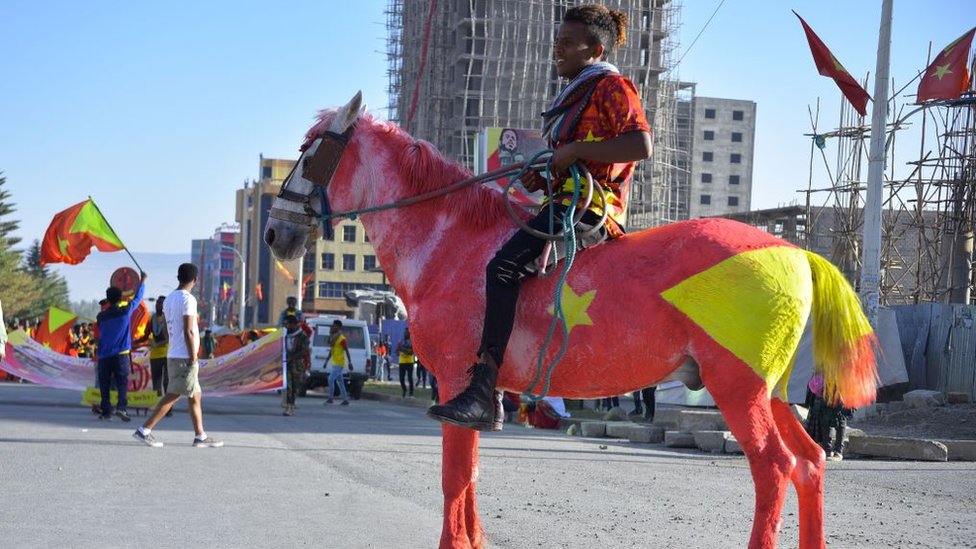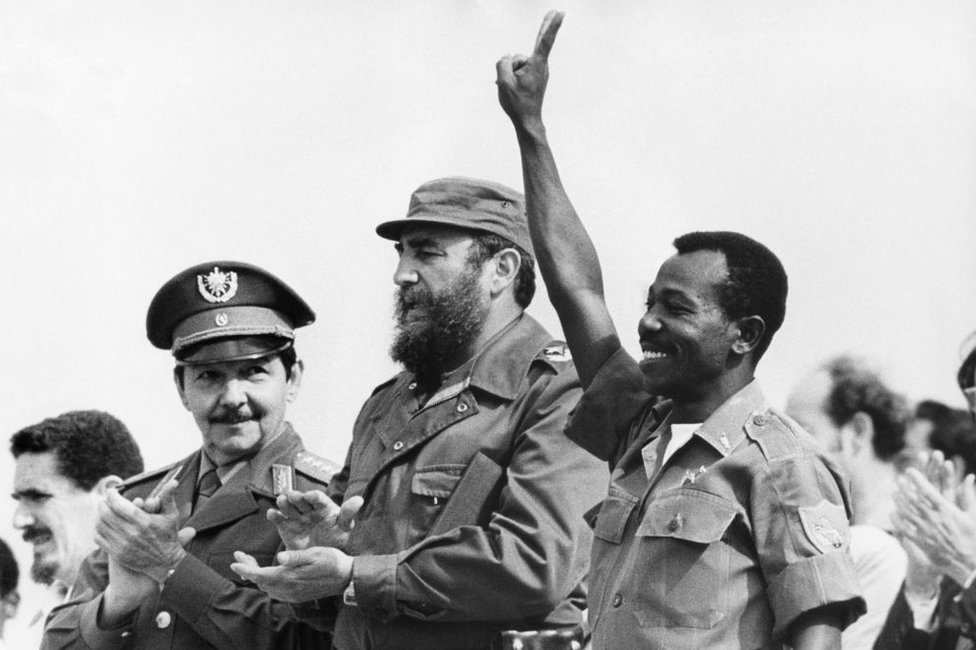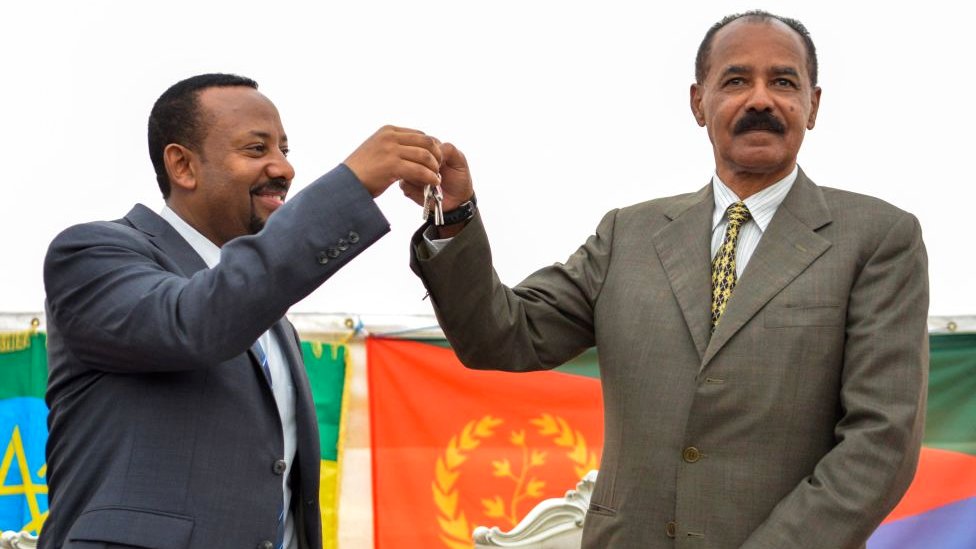Fr. Stephen Freeman
From here (photo from here, Cameroon)
(...) St. Gregory of Nyssa famously said, “Man is mud who is commanded to become a god.” That same frightening freedom is birthed with every child. And though the child is not aware of its meaning, it is born with a burning desire for God that will never be extinguished. This is the true “gravity” that guides the soul. Culture and nurture may fail and offer some tawdry substitute for God in which case the gravity of the soul will create misery. Regardless, every soul is capable of salvation, capable of giving thanks to its Creator who first shaped the mud into human form.
Though the pendulum of civilization swings in a frightening arc, its pivot point remains grounded in the providence of God.
Spend time with young children if the circumstances of your life permit. Listen to their normalcy (before someone distorts it). It is the sound of a gravity that reaches through time and will extend beyond. The universe declares the glory of God, including the fresh voices of children. Their sound, for a time, silences the noise of the enemies and the avenger.

